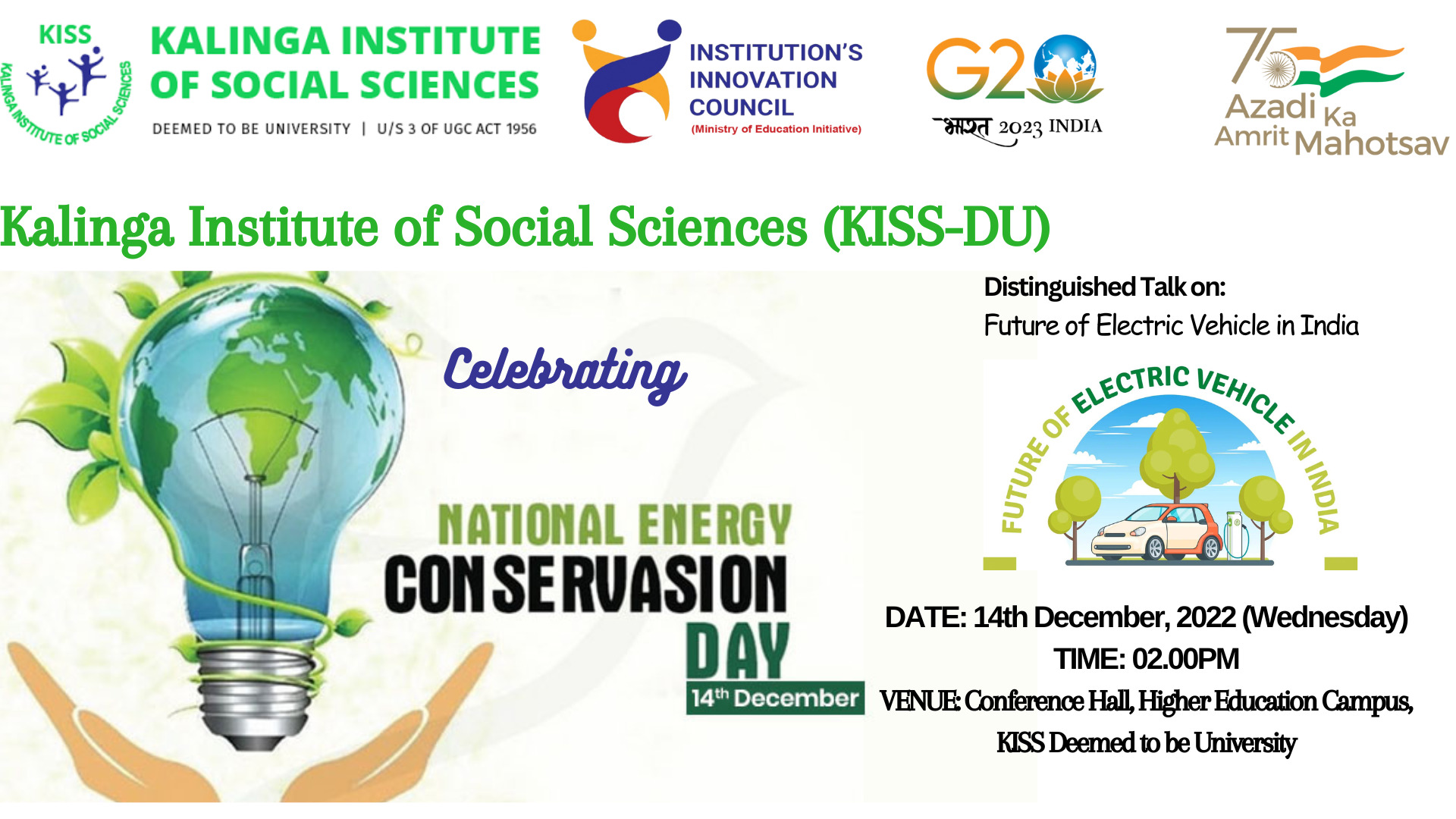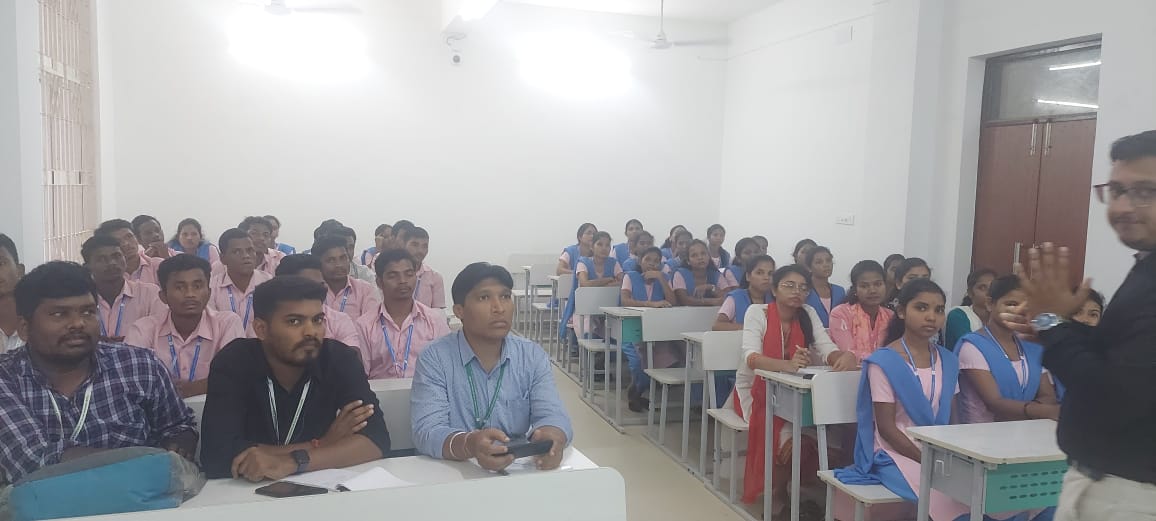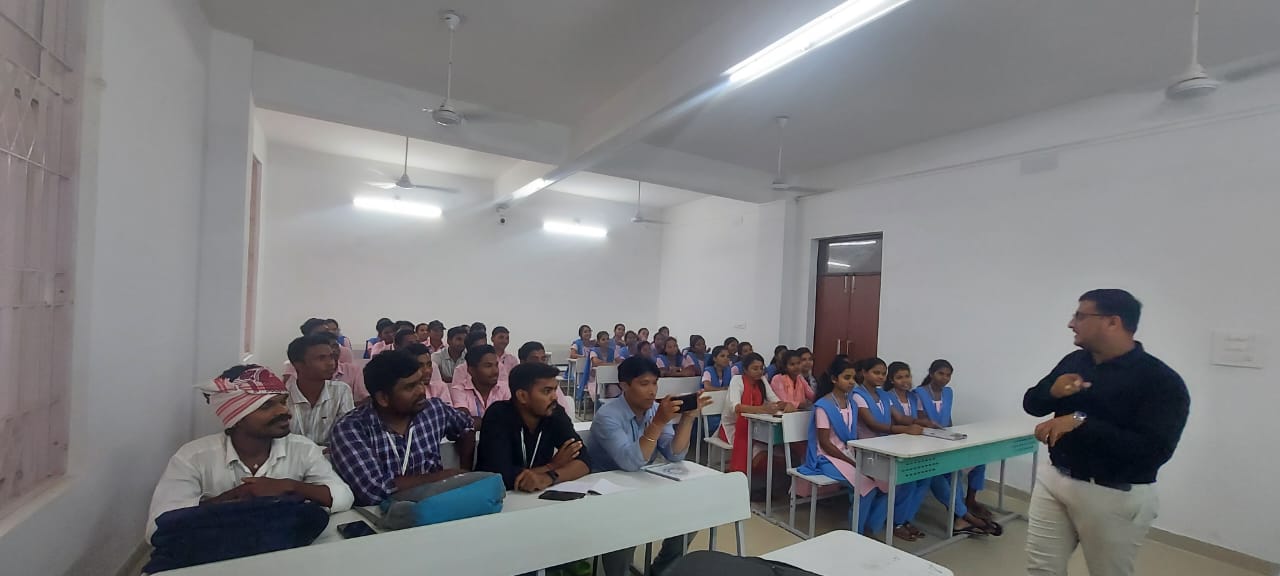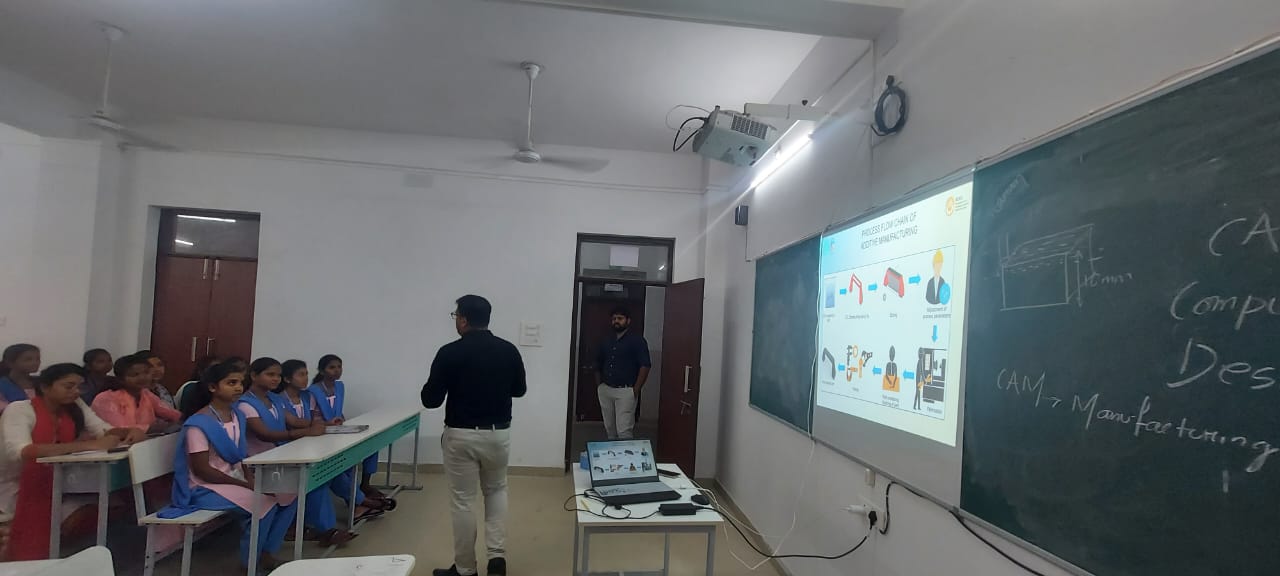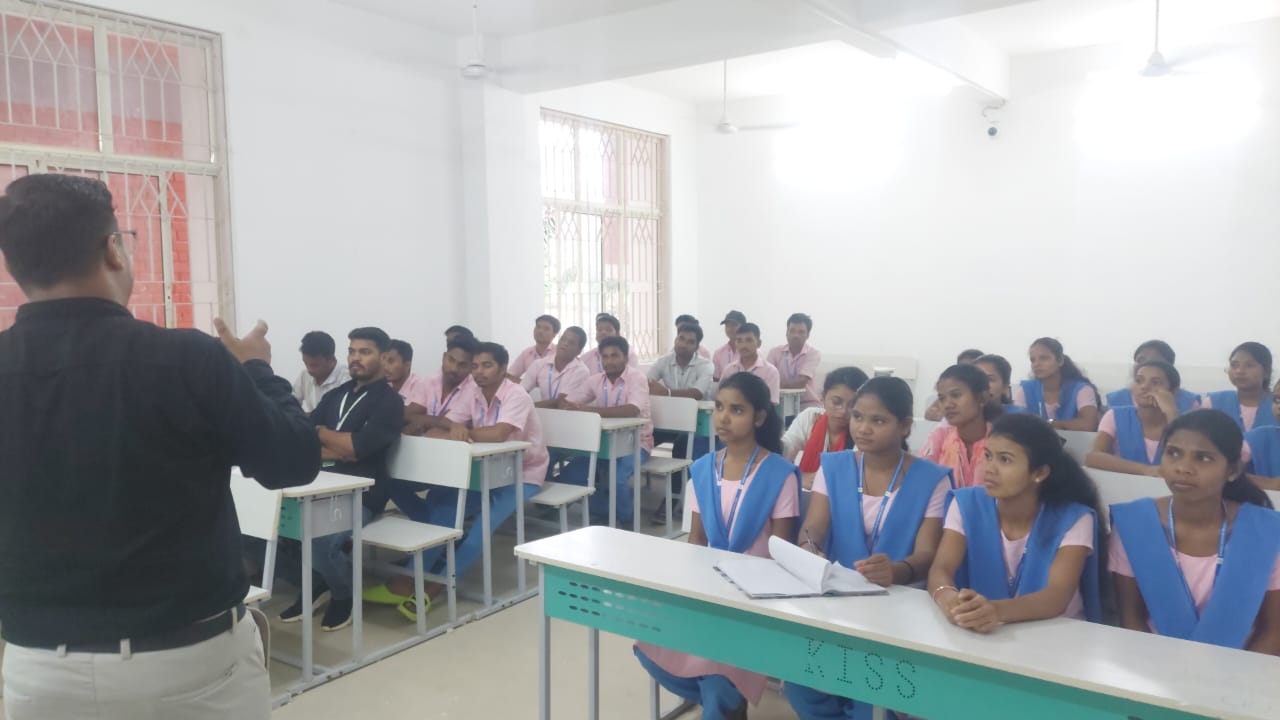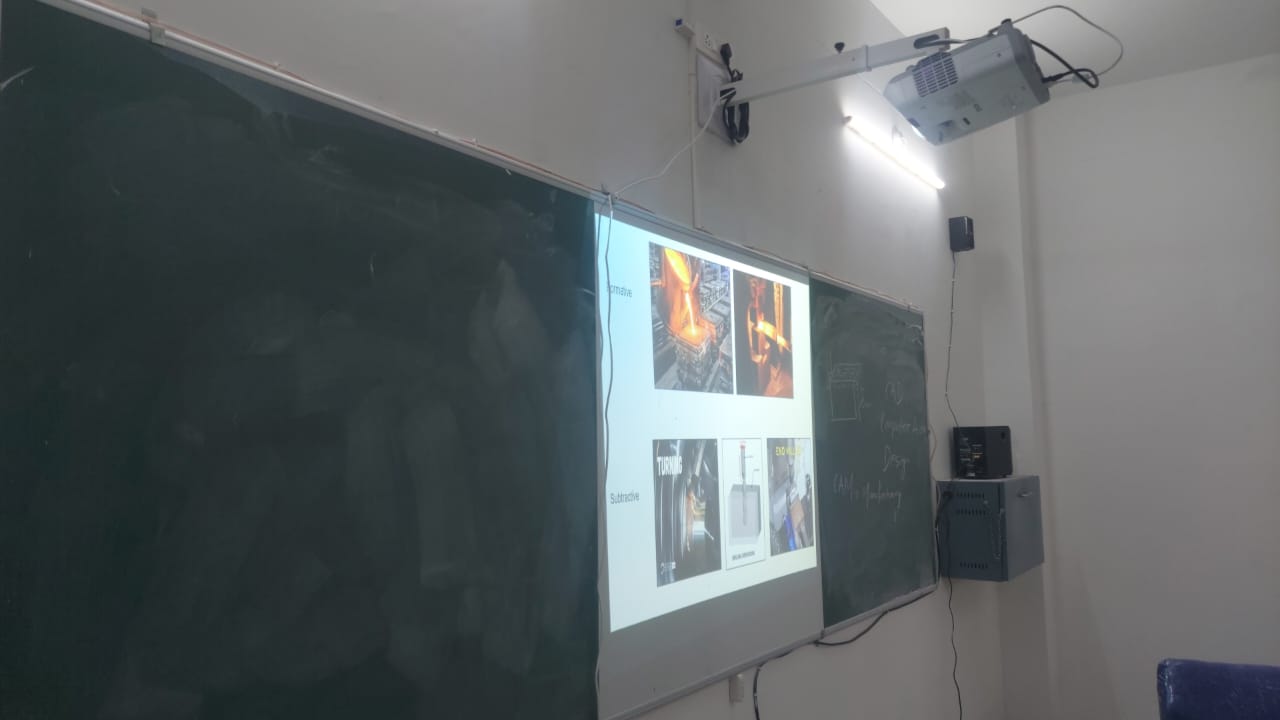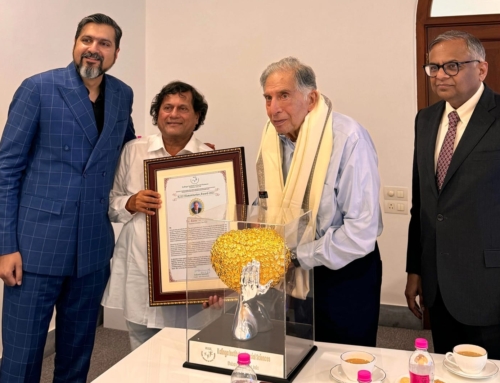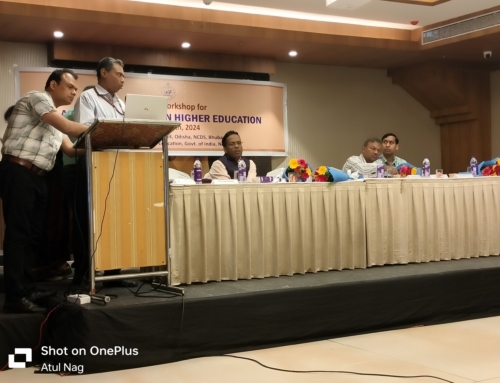The School of Comparative Indic Studies and Tribal Science, KISS-DU organized a special event on National Energy Conservation Day. The session was delivered by Mr. Malay Mahapatra from KIIT-TBI on the topic “Future of Electric Vehicles in India”. The event aimed to raise awareness about energy conservation and the potential of electric vehicles in contributing to a sustainable future. The event saw active participation from both faculty members of the School of Comparative Indic Studies and Tribal Science and over fifty students.
Mr. Malay Mahapatra, as the guest speaker, delivered an informative and insightful lecture on the future of electric vehicles in India. His expertise in the field was evident, and he provided a comprehensive overview of the challenges and opportunities in the electric vehicle industry. The lecture was followed by a lively question-and-answer session, where students and faculty members had the opportunity to seek clarifications and delve deeper into the topic. This interactive session allowed for a dynamic exchange of ideas. The event aligned well with the SDGs and the broader commitment of KISS-DU to sustainability and environmental awareness. The focus on energy conservation and electric vehicles as a sustainable transportation solution resonated with the institution’s mission. The session not only educated the audience but also inspired them to consider adopting green initiatives and make sustainable choices in their lives.
The National Energy Conservation Day event organized by the School of Comparative Indic Studies and Tribal Sciences at KISS-DU was a successful endeavor. The enthusiastic participation of both faculty and students, coupled with the valuable insights shared by the esteemed speaker, made it an enriching and enlightening experience. It reinforced the importance of energy conservation and the significant role that electric vehicles can play in India’s sustainable future. Such events contribute to the holistic development of students and promote awareness about critical environmental issues.

